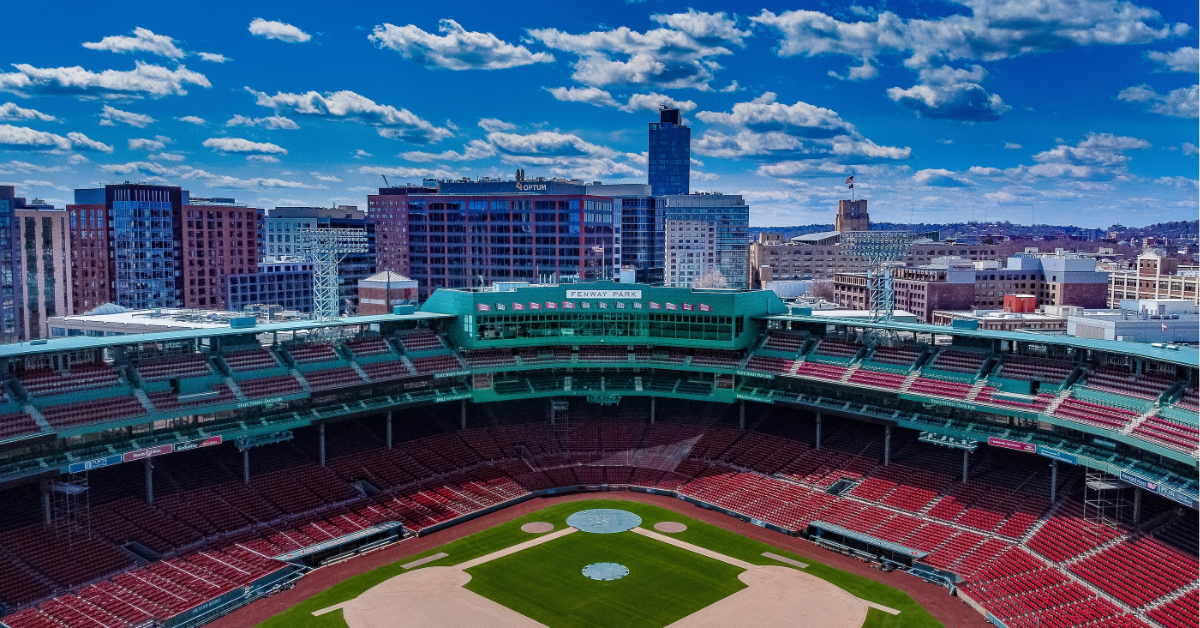Six Keys from a Sports Marketer’s View
Not all sports cities are created equal – at least not from a marketer’s perspective. Championships and dynasties grab headlines, sure. But what truly sets a city apart is the everyday current of its sports culture: Tuesday night sellouts, jerseys worn year-round, fans who make the teams part of the city’s heartbeat. For brands, that kind of energy is a rare opportunity to turn fandom into advocacy.
Having worked with major franchises and brand partners across different markets, I’ve seen the difference between a good sports city and a great one. And Boston, even as I admit this as a diehard Buffalo Bills fan, sits near the top. It’s why new franchises like the Fleet and Legacy FC keep planting their flags here, and why sports sponsorship spending in Boston consistently ranks among the highest in the country. Brands invest here because they know the passion runs deep and the ecosystem delivers.
It’s hard to imagine (looking at you, Cathy) why a team or brand wouldn’t want to be part of it. Here are six defining traits of a great sports city – and how they play out here in Boston:
- Passion That Endures. Great sports cities don’t just fill the stands when their teams are winning. They’re fueled by a fan base that shows up all year long, wears the merchandise, and turns games into citywide events. Boston fans treat their franchises and players like their own – celebrating the wins, agonizing over the losses, and showing up no matter what. Even during the Patriots’ 2023 losing season, attendance stayed above 99% capacity. This emotional connection is marketing gold. Passionate fans make stronger brand ambassadors. They create organic buzz that spills over into sponsors’ campaigns, ticket demand, and media storylines. For marketers, this passion means your message doesn’t just reach people… it resonates.
- Diversity of Sports and Demographics. Thriving sports hubs are rarely one-dimensional. They host multiple teams across leagues, engaging diverse audiences – from die-hard traditionalists to casual fans. Boston offers a rich sports landscape with established franchises in basketball, baseball, football, and hockey, plus a robust college sports scene centered on schools like Boston College, Harvard, and Boston University. This variety allows marketers to target a wide range of demographics, boosting the city’s value as a sports market.
- Media Reach and Visibility. A strong media environment is critical. Great sports cities have local radio dissecting games 24/7, regional sports networks driving storylines, and social influencers creating constant content. Add in national visibility and the city becomes a platform not just for sports, but for brand storytelling at scale. Boston has arguably one of the densest and most influential sports media ecosystems in the country. That coverage creates a powerful platform for sponsors and marketers to activate.
- Infrastructure and Accessibility. It’s not just about having iconic stadiums; it’s about how integrated they are into the fabric of the city. Can fans easily commute? Are there entertainment districts around the venue? Is game day positioned as part of a larger cultural experience? A great sports city makes attending an event as much about community and culture as it is about the game itself, fueling repeat fan engagement. Boston excels here. Fenway Park and TD Garden, for example, are not just venues. They’re woven into the neighborhoods and culture. Hundreds of people tour Fenway every day, even during the off-season. The vibrancy of Causeway Street and David Ortiz Way has allowed clients of ours like NESN to engage fans beyond the game – hosting watch parties and fanfests, capturing some of the best fan-driven social content.
- Historic Identity and Storytelling. Sports marketers thrive on narrative, and great sports cities deliver endless stories. Dynasties, underdog runs, heartbreak and redemption all add emotional equity to the market. Boston’s sports story is steeped in history and emotion. When fans believe their city’s teams are tied to its identity, every campaign or sponsorship becomes more meaningful and powerful. It’s less advertising, more storytelling.
- Strong Sponsor and Business Ecosystem. Brands want to activate where culture lives, and few things spark culture like sports. Cities with strong businesses that are willing to invest in their teams and fandoms create powerful sports economies. Companies ranging in size, industry, and geography see value in aligning with Boston’s teams, fueling partnerships that extend well beyond game day to community initiatives and digital engagement. This commercial backing turns teams, players, and leagues into long-term community anchors – and gives sponsors authentic ways to connect with fans.
A city doesn’t become a sports capital by accident. It’s built on passion, storytelling, and brand alignment. For marketers, the magic happens when all these elements work together: fans feel invested, businesses see value, and the city itself becomes part of the sport’s DNA.

